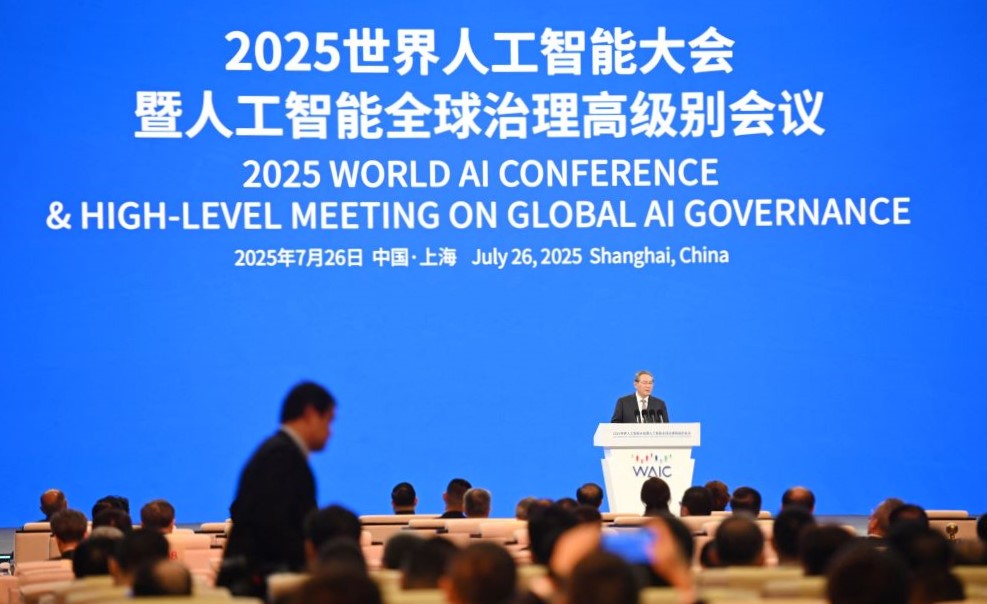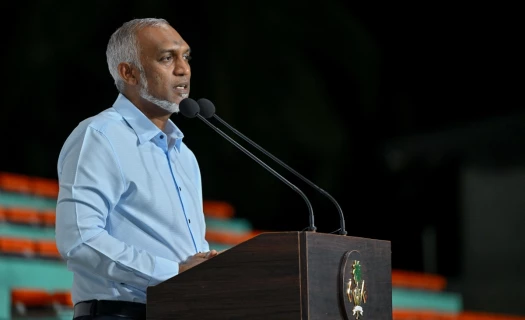China launches global AI governance plan, calls for multilateral cooperation

China has introduced a comprehensive Global AI Governance Action Plan during the 2025 World Artificial Intelligence Conference and High-Level Meeting on Global AI Governance, held from July 26 to 28 in Shanghai.
With the theme "Global Solidarity in the AI Era," the event brought together over 1,200 participants including government leaders, industry experts, researchers, and investors from 30 countries.
The newly released action plan calls for cooperation among governments, international organizations, enterprises, and research institutions to promote the safe, inclusive, and responsible development of artificial intelligence worldwide. It emphasizes fostering cross-border open-source communities, improving digital infrastructure, and bridging the AI divide especially in developing regions.
Speaking at the event, Chinese Ambassador to the Maldives, Mr. Kong Xianhua, said the plan reflects China’s commitment to multilateralism and its intent to support the Global South in achieving equitable access to AI technologies.
He emphasized that AI is reshaping economies, governance systems, and daily life, and its global governance requires joint action to ensure AI serves all humanity.
The 13-point action plan outlines China’s vision for a safe, fair, and sustainable AI future, highlighting the importance of collaborative innovation, responsible use, and the development of universal standards.
Key points include:
- Harnessing AI for global development: Encouraging all stakeholders to participate in the advancement of digital infrastructure and AI technology to support the UN’s 2030 Sustainable Development Goals.
- Promoting inclusive innovation: Establishing international platforms to share knowledge, remove technological barriers, and explore cutting-edge AI applications.
- Empowering industries and the public sector: Facilitating the adoption of AI in healthcare, education, agriculture, and smart cities while ensuring regular safety assessments and data protection.
- Strengthening global digital infrastructure: Expanding access to computing power, clean energy, and intelligent data systems, particularly in the Global South.
- Building robust open-source ecosystems: Encouraging open collaboration and compliance, with emphasis on lowering innovation barriers and enabling secure AI development.
- Ensuring ethical and environmental responsibility: Promoting sustainable AI practices, energy-efficient technologies, and protection of personal data and privacy.
- Establishing global standards and governance: Working through international organizations such as ITU, ISO, and IEC to develop fair and transparent AI norms and frameworks.
The plan also advocates for the implementation of the United Nations Pact for the Future and its Global Digital Compact, including the creation of new UN-led panels and dialogues on AI governance.
To close digital divides, the plan calls on leading AI nations to assist developing countries in building capacity, infrastructure, and public AI literacy, with a focus on supporting women and children in the digital transformation.
China emphasized that the governance of AI should be inclusive, transparent, and multilateral, involving all sectors of society to ensure that AI technology remains a force for good.














